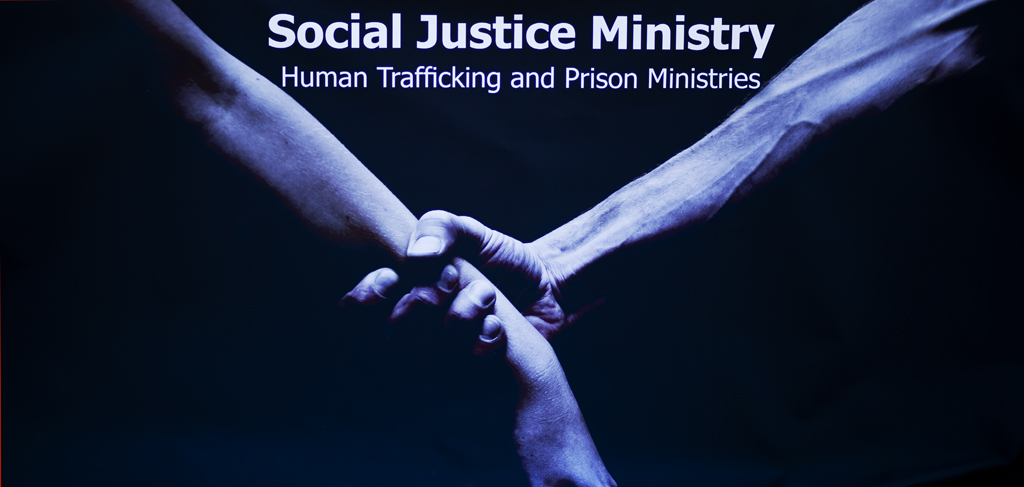The basics of Social Justice
Social justice is an action. It is an action that upholds basic human right principles and seeks to break down the barriers that many people face. Upholding a social justice principle is displayed when equality and respect is promoted. It is advanced when the barriers that challenge inalienable rights are broken down and a sustainable environment is advocated. Promoting human rights and igniting the potential of each individual to take a stand can be advocated on a government platform or college campus. Biola is no exception, advocacy can begin right here.
The heart of social justice is outlined in Micah 6:8 as acting justly, loving mercy and walking humbly. Therefore outlining that social justice is meant to be a lifestyle, not just an activity. Social justice is generally a reflection of the principles of humanitarian equality and solidarity — principles that are based off of an understanding that values human rights and recognizes the self-worth of an individual.
The constitution of the International Labour Organization affirms that, “universal and lasting peace can be established only if it is based upon social justice.”
UN Secretary General, Ban Ki-moon states, “Social justice is more than an ethical imperative … Equal opportunity, solidarity and respect for human rights — these are essential to unlocking the full productive potential of nations and peoples …”
Becoming aware of the issues
As stated by the Vienna Declaration and Program of Action, human rights education is birthed out of social injustice; and these injustices are the reason for many alliances, organizations and movements that have populated many college campuses. Sprinkled throughout America both locally and on college campuses are organizations, revivals and movements taking place in the name of justice and peace, ranging on issues regarding violence against women to issues of hunger and poverty. Since college is a time of growing and learning, evolving and engaging, the social justice platform can be appropriately constructed on many campuses.
“College students need to be aware of the social issues in society that deal with injustices against people in our country and other countries,” said Riverside County District Attorney’s Special Investigator, Rick Fuentes. “Just take a look at the everyday people in countries like Egypt, Syria and Libya — all of whom are standing up for their human rights and [are] demanding change.”
Anyone and everyone can join a cause and support a movement; all it takes is being present. Social Justice Ministry director and former leader of the Biola Human Trafficking Ministry, Amanda Andrews, believes that social justice should be a lifestyle.
“[Social justice] isn’t limited to a select group of called students who put in volunteer hours toward social justice,” Andrews said.
Instead, Andrews encourages students to volunteer their talents and services to help social justice causes.
“Volunteer your professional services to help an anti-trafficking organization that needs help from lawyers, doctors, dentists, counselors, interpreters, graphic designers, public relations and media professionals and accountants,” Andrews suggests.
How to get involved
Getting involved with humanitarian organizations can be local, national and global engagements. However, joining an on-campus organization can also help make a difference and provide for a good starting ground. Taking advantage of campus organizations is key: It connects you to other like-minded individuals, provides a gateway for you to advocate and give voice to your passions and it is right on campus.
“College students should become aware of social justice issues such as: Human Trafficking and Child Slavery, because these injustices are no longer limited to just happening in third world countries but is alive and well in our backyard here in America,” said officer Fuentes.
Last year, the Biola Human Trafficking Ministry, a ministry I align myself with, gave students countless opportunities to network with other secular organizations such as: the Salvation Army victim mentorship program, California Against Slavery, Live2Free’S High School Awareness presentations and many more. The Biola Human Trafficking Ministry is not the only on-campus ministry contributing to change, there are many more organizations that are equally involved with the community and their cause.
A few organizations on Biola’s campus are: S.A.Y. Yes! ministry, Social Justice Ministries: Human Trafficking, Women’s Care, Orphan Care, Prison Ministry, Brown Bag Ministry, Tijuana Ministry, Revive Ministries, Honduras Water Project and many more.
Andrews even goes on to state that social change can also be done just by being a conscientious consumer.
“Make socially responsible investments. Let your favorite retailers know that you support their efforts to maintain a slavery free supply chain. Encourage your company or your employer to take steps to investigate and eliminate injustices throughout its supply chain.”
Local and online organizations that have worked alongside members of the Biola community include: The Union Rescue Mission, LA Mission, The OC Food Bank, LA Food Bank, Redeemtheshadows.com, The Salvation Army, California Against Slavery Task Force, MY Refuge House, Tinyhandsinternational.org and many more.
To get connected with any of these ministries, check out the Spiritual Life Department for further information.







